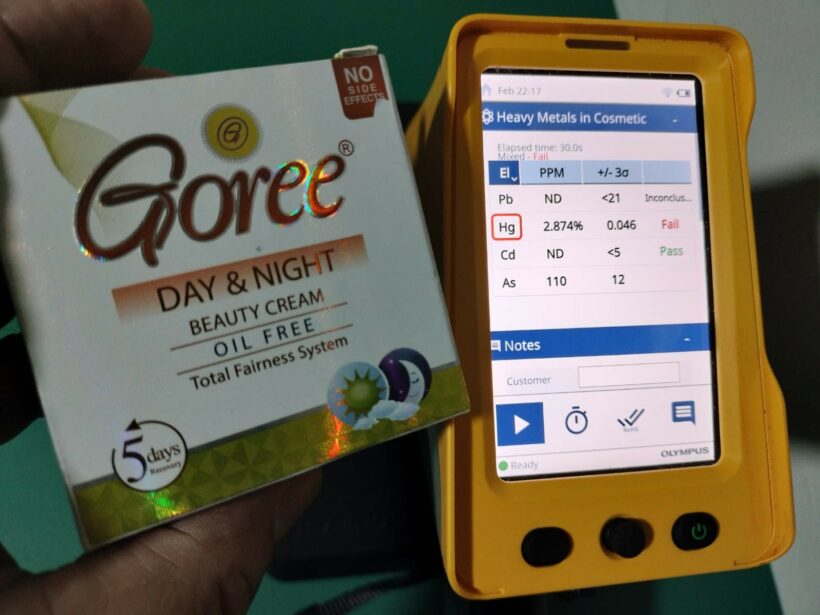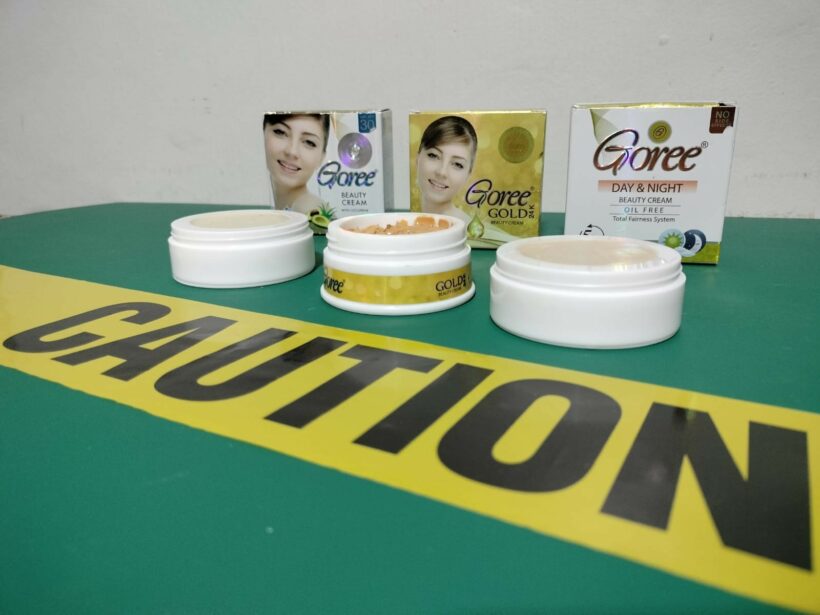22 February 2024, Cebu City/Quezon City. An environmental health NGO sought the help of Cebu City Mayor Michael “Mike” Rama to stop the unlawful sale of contraband cosmetics containing high concentrations of mercury, a health-damaging chemical not allowed in cosmetic products.
“We respectfully request your good office to take the necessary action to stop the continuing sale in Cebu City of skin whitening cosmetics that have been banned by the Food and Drug Administration (FDA) for lacking the required cosmetic product notification and/or for containing mercury above the maximum limit of one part per million (ppm) as per the ASEAN Cosmetic Directive and the Minamata Convention on Mercury,” wrote Aileen Lucero, National Coordinator of the EcoWaste Coalition through an e-mail sent today.
As part of its vision towards a zero waste and toxics-free society, the EcoWaste Coalition has been campaigning for pollution prevention and reduction from chemicals and waste, particularly targeting mercury-added products like skin-lightening cosmetics that should have been phased out globally in 2020.
Last Wednesday, visiting staff of the EcoWaste Coalition went to 138 Wholesale Mall in Colon St. and managed to buy three variants of “made in Pakistan” and FDA-prohibited Goree Beauty Cream from stores operating inside the mall. FDA banned Goree Day & Night Beauty Cream and Goree Beauty Cream with Lycopene in 2017, while the public health warning against Goree Gold 24K Beauty Cream came out in 2023.

This Goree Beauty Cream contains 2.874 percent (or 28,740 parts per million) of mercury, way above the 1 ppm maximum limit.
Based on the chemical screening conducted by the group with the aid of an X-Ray Fluorescence (XRF) device, Goree Day & Night Beauty Cream was found contaminated with 28,740 ppm, Goree Beauty Cream with Lycopene with 28, 690 ppm, and Goree Gold 24K Beauty Cream with 25,460 ppm of mercury.
The levels of mercury detected on the three Goree products also exceed the threshold value of 15 ppm for mercury waste under the Minamata Convention, noting that other countries use a more health-protective standard such as 5 ppm to define mercury waste.
Lucero informed Rama that “mercury is a potent neurotoxin that can damage multiple parts of the body, including the brain and the nervous system, the kidneys and the skin itself as manifested in skin rashes, discoloration and scarring and the skin’s reduced resistance to bacterial and fungal infections.”
She further explained that “direct application of contaminated skin whitening creams can lead to dermal absorption of mercury and inhalation of mercury vapor creating a two-fold exposure scenario,” adding “children and other non-users may also be poisoned as mercury vapors seep into clothes, towels and furnishings polluting the air.”
Lucero said, “Women are the main marketing target of mercury-added skin whitening cosmetics and are most susceptible to the adverse effects of toxic exposure, particularly if they are of childbearing age.” She pointed out that “mercury is known to cross the placenta during pregnancy and accumulate in fetal tissues, affecting the developing brain and nervous system of the baby in the womb and causing neuro-developmental disorders.”
To stop the illegal trade of skin-lightening products in Cebu City and protect human health and the environment from mercury contamination, the EcoWaste Coalition requested the city government to:
— conduct unannounced store inspection at 138 Wholesale Mall and other retail outlets and seize FDA-banned cosmetics containing mercury;
— promulgate an Executive Order or a city ordinance banning and penalizing the manufacture, importation, distribution, and sale of mercury-containing cosmetics;
— include the prevention of mercury exposure through adulterated cosmetics in the City Health Department’s health promotion drive; and,
— launch a “Brown Is Beautiful” campaign to instill appreciation and acceptance of one’s natural skin color.
References:
https://www.fda.gov.ph/wp-content/uploads/2022/05/FDA-Advisory-No.-2017-289.pdf
https://www.fda.gov.ph/wp-content/uploads/2023/11/FDA-Advisory-No.2023-2344.pdf
https://www.fda.gov.ph/wp-content/uploads/2023/12/FDA-Advisory-No.2023-2391.pdf
https://www.fda.gov.ph/wp-content/uploads/2023/12/FDA-Advisory-No.2023-2392.pdf










